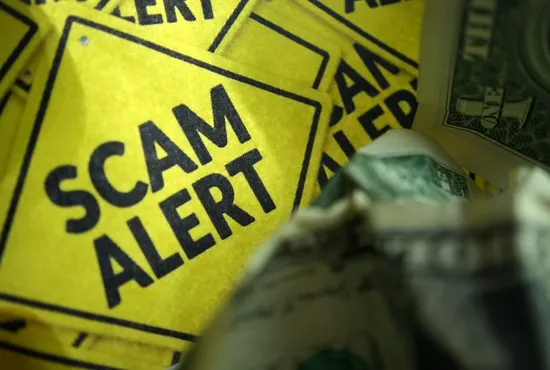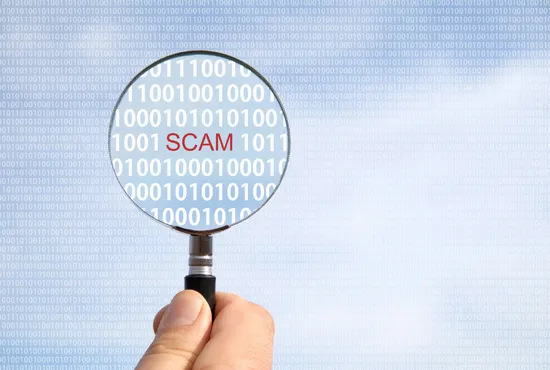
Scam damage control. I have been scammed, what now?
When, you are scammed this way or that, the natural response is one of shock and anger. You usually feel let down by others. The process of scam damage control is all about minimising the impact on you and your loved ones so that you can move on in a positive frame of mind. Check out what you can do to minimise its influence on your life and how to get your money back. We remind you where to report scammers and how to protect yourself for the future.
Where to report a scam?
- If the scammer is in your area or you have transferred money in the last 24 hours contact police - call 101
- If you feel threatened - call 999
- Report it to Citizen Advice by calling 0808 223 1133 or filling in this form
- It is vital that you report all types of scams to Action Fraud, the UK's national reporting centre for fraud by calling 0300 123 2040 or online
- If you got a scam email forward it to [email protected]
- If you've been scammed through the post report it by sending e-mail to [email protected]
- If you've seen a scam advert online report it to Advertising Standards Authority (ASA)
Scam damage control process

The scam damage control process can be broken down into a number of steps. Here is a short guide to the key ideas.
- Firstly, take stock of your situation. Are there any serious consequences for you or your family as a result? If so, make sure these are dealt with properly so that they don’t cause further problems in future.
- Be sure to report the scam as quickly as possible. This will help authorities track down and prosecute scammers, and may also help protect others from being scammed in the future.
- Consider which authorities and institutions you need to notify first. It's often helpful to explain exactly what happened so they can investigate further and put safeguards in place to help prevent similar scams in the future.
- If you have been scammed out of money or possessions then do make sure that your insurance policies are up to date and that any losses will be covered by them. This is particularly important when the scam was conducted online as there may be specific clauses relating to this in your contract; otherwise, it can invalidate the policy in some cases.
- Keep records of your interactions with any potential scammers, including email and text messages, voice or video recordings, or even social media conversations. This will be useful if you need to provide evidence that the scam took place, and can also help protect you from further scams down the road by giving you insight into how these scammers operate.
- Take a step back from the situation: try to put yourself in the shoes of an objective observer and see what other people might think or say about your actions in order to determine whether they were right or wrong. Perhaps consider running an anonymous poll with people you know well who can give you an honest opinion based on facts rather than emotions.
- Get all the necessary paperwork done.
- Focus on the future and building your life back up. This can be a challenging prospect when you’re feeling upset or down. But, if you feel that you have done everything possible to deal with the scam, then there’s nothing more that anyone else can do at this stage – so it is time to move on.
- Finally, redouble your efforts to keep yourself safe from scams. Set up an email address specifically for dealing with things that seem too good to be true. Take note of the government and private bodies who are fighting back against online fraudsters and have your details on record so that you can contact them immediately if anything similar happens again in future.
- if emotionally you can not cope with what happened - get help, the numbers can be found here.
It is worth bearing in mind that the scam damage control process can be greatly eased with proper legal representation. In some cases, a lawyer may even be able to resolve matters simply by contacting the relevant authorities or individuals involved on your behalf – meaning that you don’t have to speak directly to them yourself. And this can make all the difference when you are already trying to cope with feelings of upset and frustration at what has happened!
Can I get my money back after the scam?

If you have entered your personal information online or card number and suspicious activity has appeared on your account in the first place contact your bank or card provider. Explain the situation and ask for a refund. If you're not satisfied with their response, you can lodge a complaint. You can find out how to do this on their website.
If you notice any fraudulent bank accounts, investment accounts or lines of credit in your name, contact the organizations involved and ask them to close the account and remove any charges.
If it's been 8 weeks since you made the complaint and you haven't received your money back, contact the Financial Ombudsman Service. You can also contact them if you've received a final response letter from the bank stating that they will not be taking any further action.
If the Ombudsman decides that you have been treated unfairly, they have legal powers to resolve the issue.
For credit card purchases, your card issuer can ask the seller's bank to give you back your money through something called chargeback. If the item cost more than £100 but less than £30,000 and was bought with a credit card, however, you may be able to file a Section 75 claim under the Consumer Credit Act instead. Purchases of less than £100 made with credit cards are not eligible for Section 75 claims but may still qualify for chargeback refunds.
Protect yourself from further risks

If you have been a victim of fraud it is extremely important to learn a lesson, as well as to protect yourself from further such incidents. What can you do?
- Change all the passwords and online accounts - phone TV, social media platforms, internet provider, email, utility providers etc.
- Install anti virus software if you don't have one
- Change your online banking accounts login
- Change PIN of your all debit and credit cards or freeze them if necessary
- If you are a victim of identity theft, inform all institutions and block your ID and passport
- Place a fraud alert on your credit reports
- Set up two-second authentication on any portal that has this capability.
If you think that you may have been scammed, it's important not to panic or give up hope. Taking these steps may not completely repair any damage done by a scam, but they can certainly help minimize its impact on your life. And remember: always exercise caution whenever interacting online with people you don't know! Just by taking some simple steps, there's still a lot you can do to minimize any damage done and protect yourself in the future. Good luck!